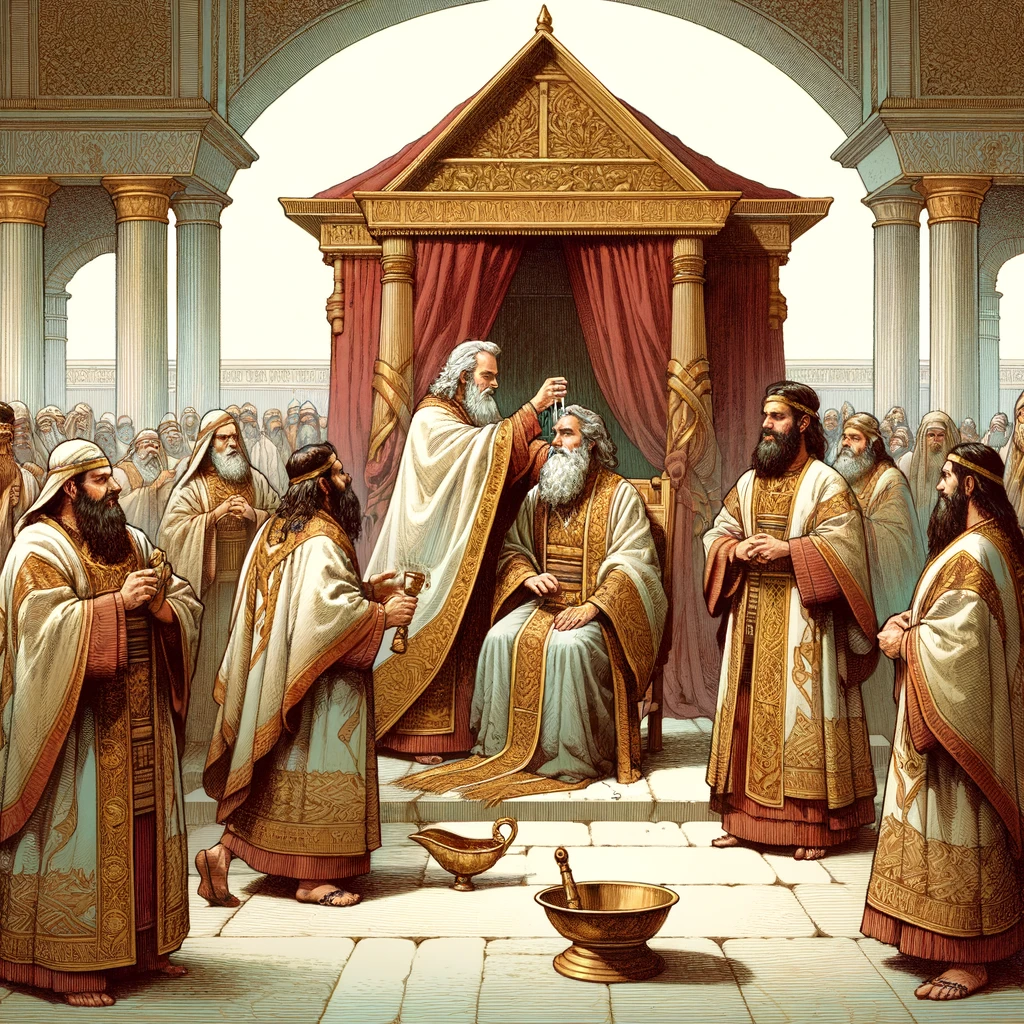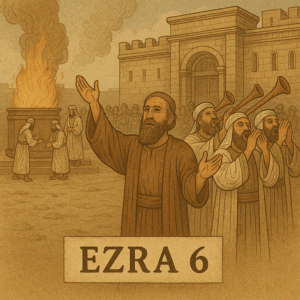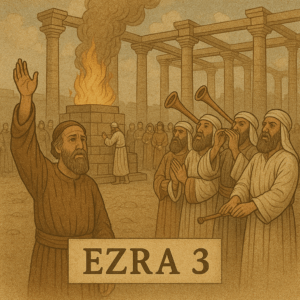Beyond instruction, into sacred action: The tabernacle comes alive.
Having laid out the blueprint for the Tabernacle and its furnishings in previous chapters, Leviticus 8 shifts from words to action. Here, we witness the momentous consecration ceremony, marking the official transition from a mere tent to a sacred dwelling place for God among His people.
Garments of glory: Adorning the high priest and his sons.
The chapter opens with meticulous instructions for the consecration of Aaron and his sons as priests. Their attire becomes a focal point, each piece imbued with symbolism. Fine linen robes, a precious breastplate, and a golden crown signify their elevated role as mediators between God and the Israelites.
Anointing with oil: Infused with divine power.
The act of anointing Aaron and his sons with oil holds profound meaning. This precious liquid symbolizes the Holy Spirit, empowering them to carry out their sacred duties with wisdom and divine authority.
Offerings and sacrifices: Dedication and atonement.
A series of offerings and sacrifices mark the consecration ceremony. From burnt offerings to sin offerings, each act signifies dedication, atonement, and the seeking of God’s favor in establishing this new place of worship.
The Seven days of dedication: A journey of holiness.
The consecration process doesn’t end in a single day. Leviticus 8 emphasizes the seven-day period dedicated to cleansing, preparing, and offering sacrifices. This extended ritual highlights the importance of complete purification and dedication before God inhabits the Tabernacle.
The glory descends: A sign of divine presence.
The culmination of the ceremony arrives with the breathtaking descent of the Shekinah glory, a visual manifestation of God’s presence. This event serves as a powerful confirmation of His acceptance of the Tabernacle and His willingness to dwell among His people.
Beyond the ritual: Lessons for our lives.
While the specific practices of Leviticus 8 may not translate directly to our modern world, the underlying themes offer valuable insights:
- Importance of preparation: Approaching spiritual practices with dedication and inner cleansing.
- Symbolism in our lives: Recognizing the symbolic meaning in rituals and practices we hold dear.
- Seeking God’s presence: Cultivating an environment conducive to feeling God’s presence in our lives.
- Commitment to service: Dedicating ourselves to serving others and contributing to a greater purpose.
Conclusion.
Leviticus 8 offers a glimpse into the transformative experience of the Tabernacle’s consecration. It serves as a reminder of the importance of ritual, symbolism, and dedication in fostering a deeper connection with the divine. While the specific practices may differ, the underlying themes resonate across time, offering valuable lessons for our own spiritual journeys.




